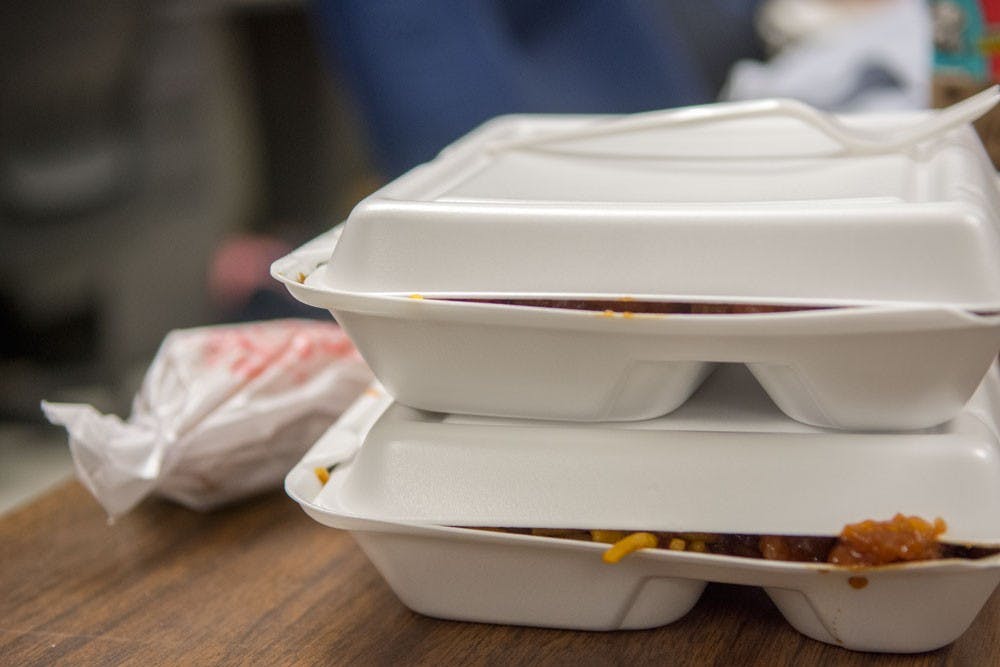When a student orders food in The Commons, the food will typically be handed to them in a Styrofoam “to-go” box. While most students fixate on the food inside rather than the actual container, these boxes may be hazardous.
Polystyrene, otherwise known as Styrofoam, is a known carcinogen that may potentially harm the environment.
Campus Dining & Shops (CDS) has pushed to become more environmentally friendly by upping recycling and the use of compost bins among other practices, including the banning of Styrofoam food containers.
The Commons, however, is not a part of UB’s jurisdiction, as First Amherst Development leases it.
The UB Professional Staff Senate approved the “Greening The Commons” initiative in November, which works to eliminate the harmful effects of using polystyrene in food containers as well as the lack of recycling practices in The Commons, said Domenic Licata, chair of the Professional Staff Senate.
“We hoped to convince the vendors that if they built that cost into their products over the course of a couple semesters, either no one would notice or people wouldn’t mind paying an extra quarter knowing they were doing the right thing,” Licata said.
Because UB does not legally own The Commons, it ultimately cannot force any kind of action in regard to recycling or finding different containers to serve food in. Students are able to request their food to be served on other paper products or foil.
Zibi Garczynski, manager of all The Commons’ leaseholders, said the decision is up to each individual vendor.
“The majority of vendors are considering a change and knows that all of them are aware of the proposal,” Licata said.
Brian Stuhlmiller, assistant director of environmental affairs at UB, said he thinks The Commons should find a way to become more environmentally friendly.
“We have brand new garbage cans that focus on recycling, we’re zero waste at football games, we’re being as environmentally net-zero as we can, and to have a building on campus that is not aligned with our values, that is why it should change,” Stuhlmiller said.
The resolution also includes plans for an informational campaign to make customers of The Commons more aware that they may be contributing to harming the environment.
Nikhil Shekhar and Ashwin Mittal, both graduate computer science students who frequent The Commons, were previously unaware of both the resolution and the problem but said they would support such an initiative.
“Just by increasing the cost by five cents or something you can ensure that you get rid of [Styrofoam], then that’s good,” Shekhar said.
Both Shekhar and Mittal said they would be willing to pay up to 25 cents extra for a more renewable product.
Licata said he hopes to start hanging up flyers and do sidewalk stand-ins near The Commons to raise more awareness.
Licata said students can incite change by making sure they voice their opinions on the matter.
Licata cited when a student movement in the early ’90s brought a ban on pesticides to UB’s campus as a similar issue.
Andrew Charonneau, a junior environmental engineering major and member of the UB Sustainability Committee, said everyone must be aware of their actions as making an impact on the earth. He said once that happens, change can occur.
“It’s really hard to do, but once you sort of get into that habit of, you’re just thinking about your impact, and how you can change your daily actions,” Charbonneau said. “You know everyone can make a change, and it starts with you deciding you want to make a change and from there it just kind of ripples out.”
Corey Klino is a news staff writer. News desk can be reached at news@ubspectrum.com.





